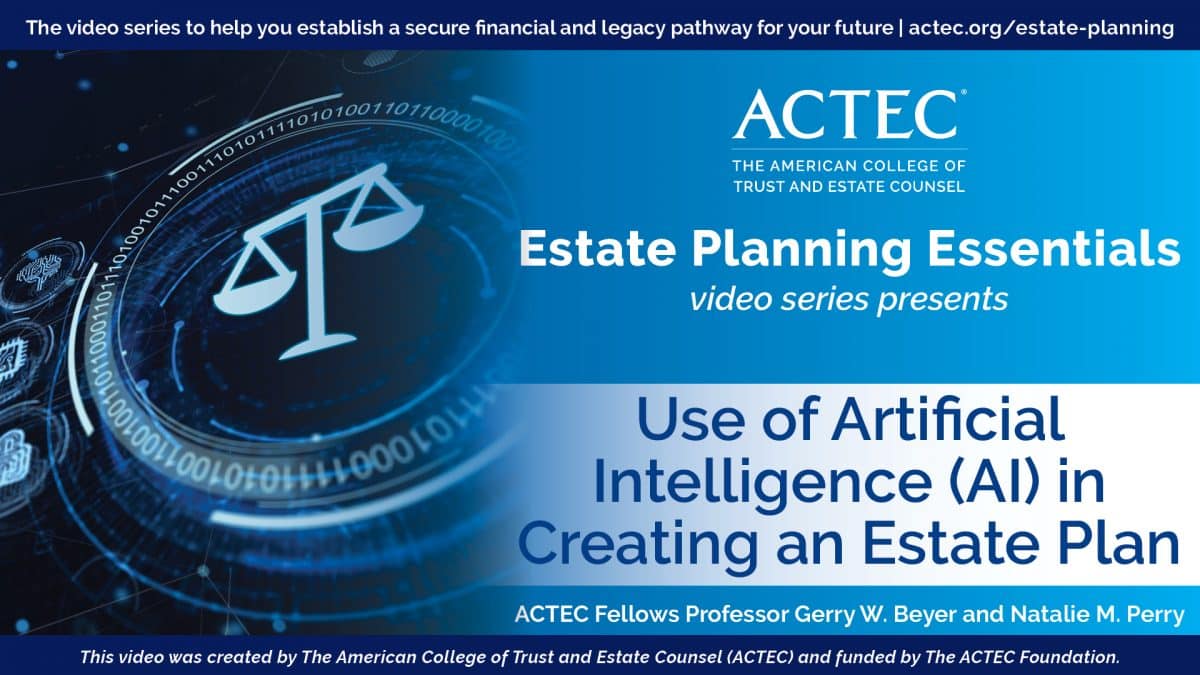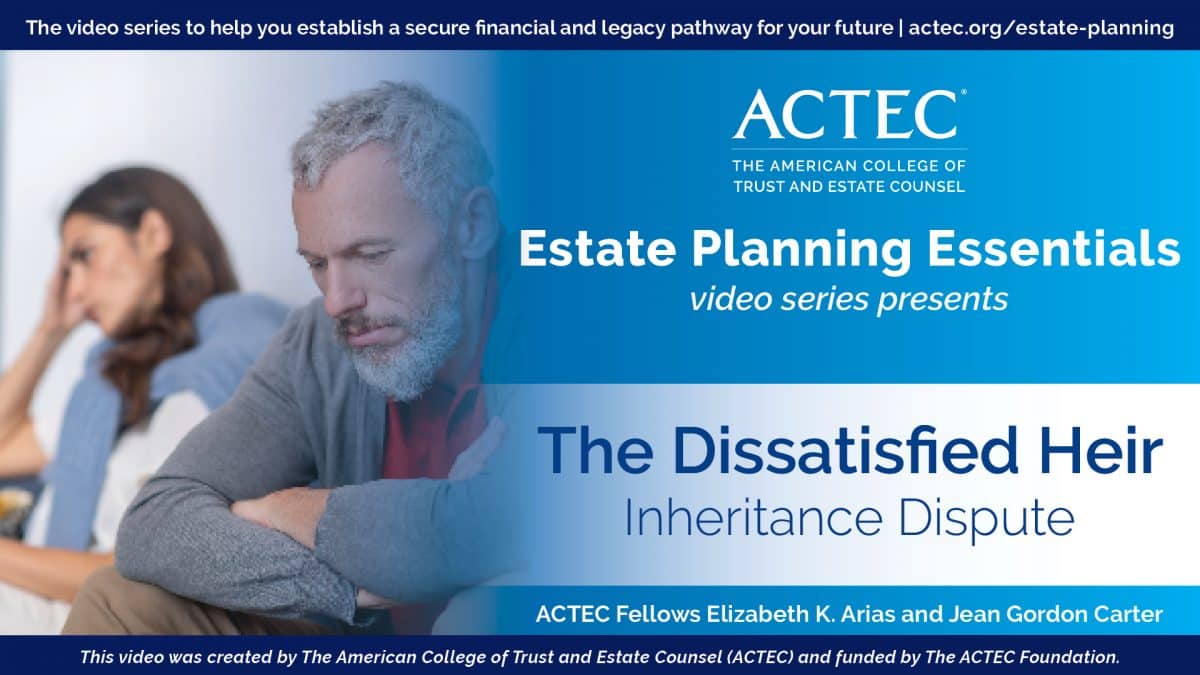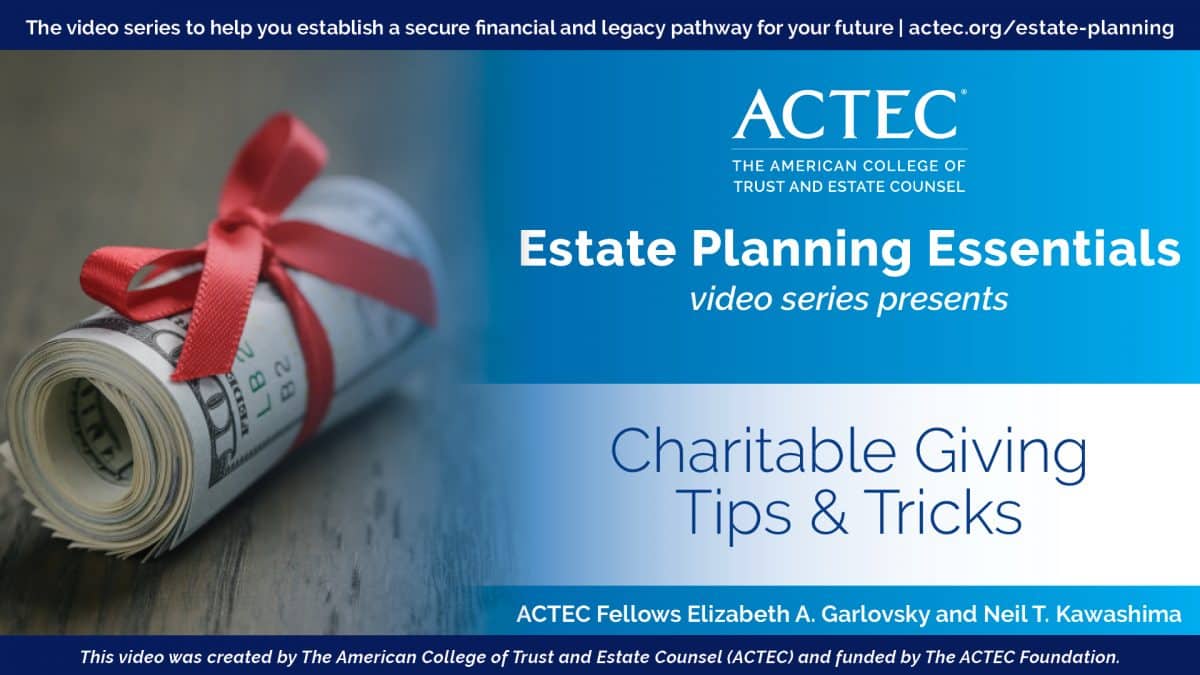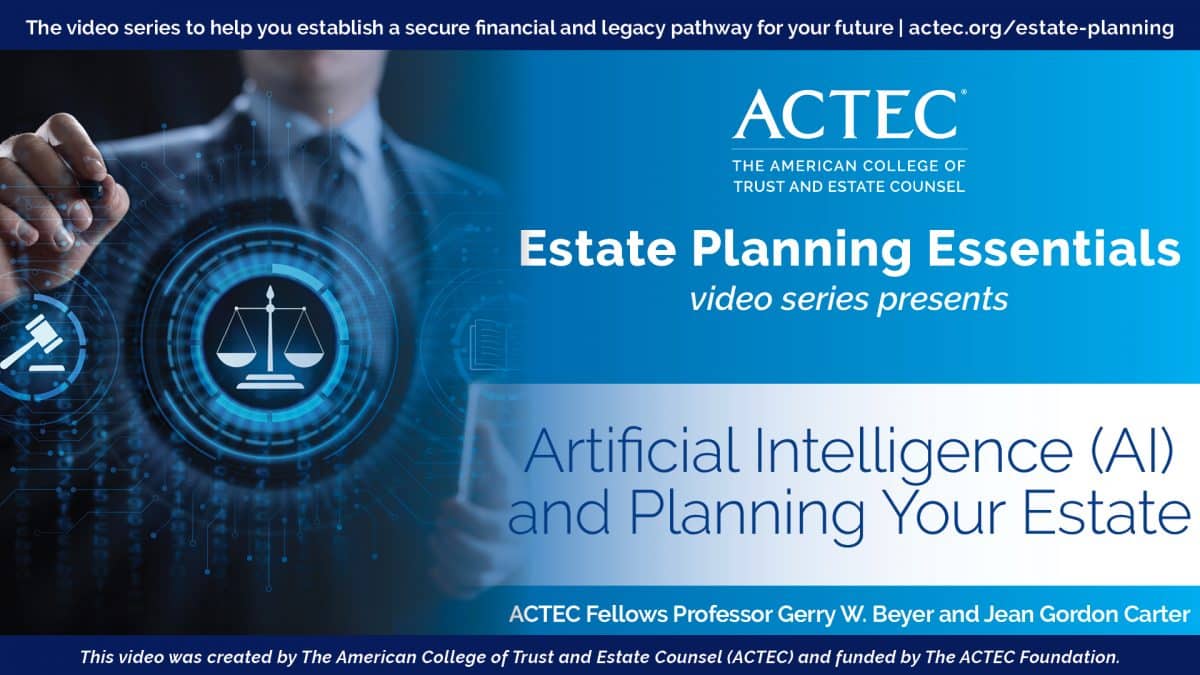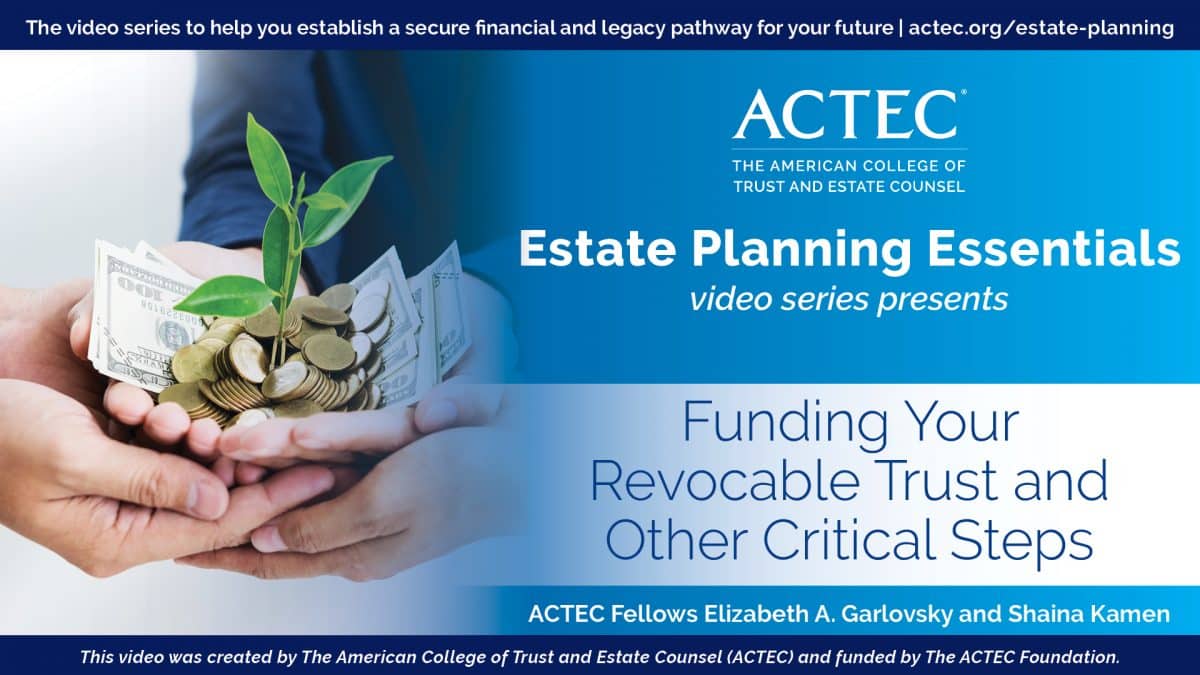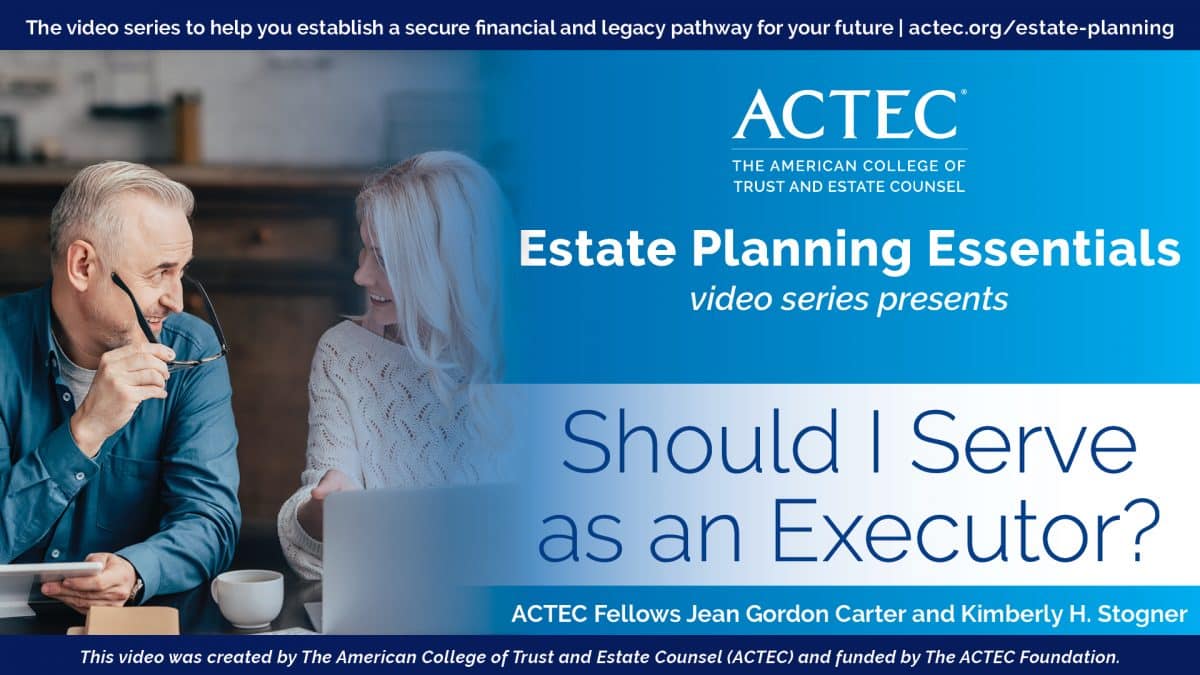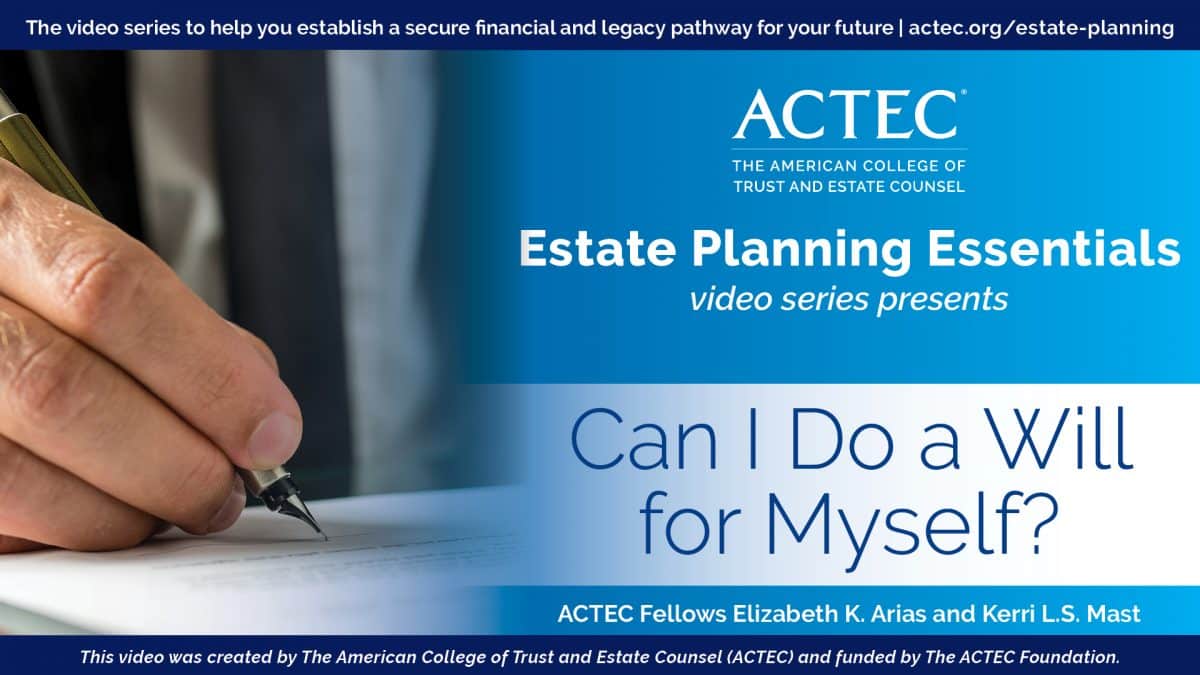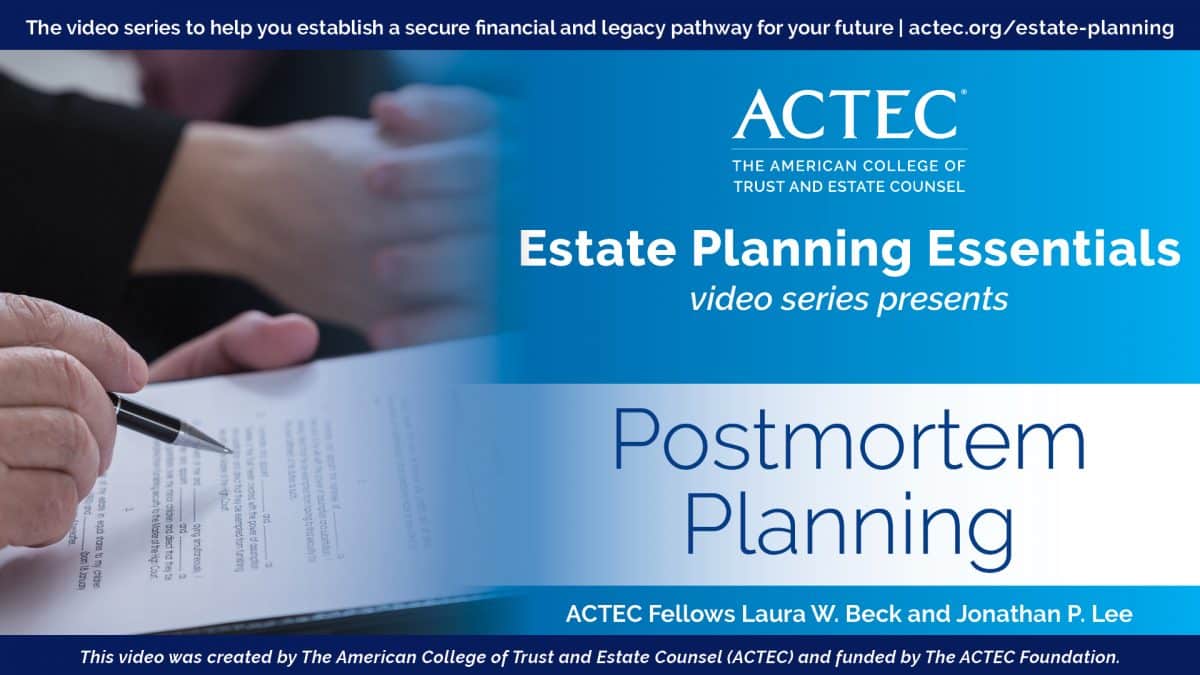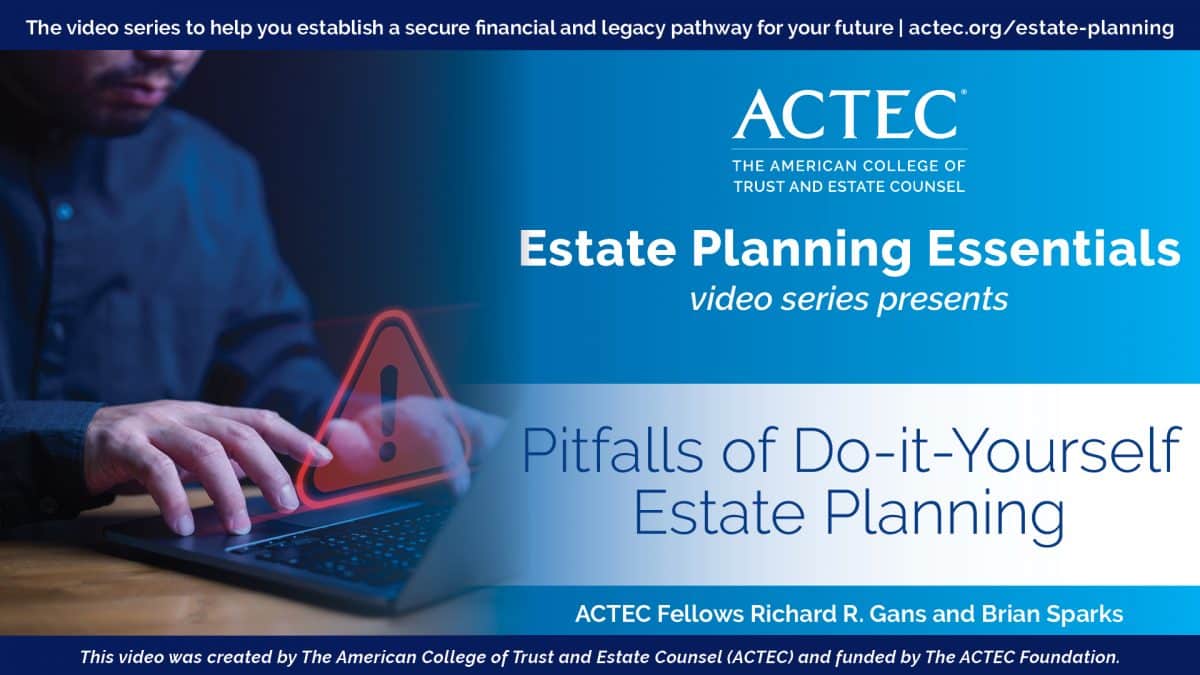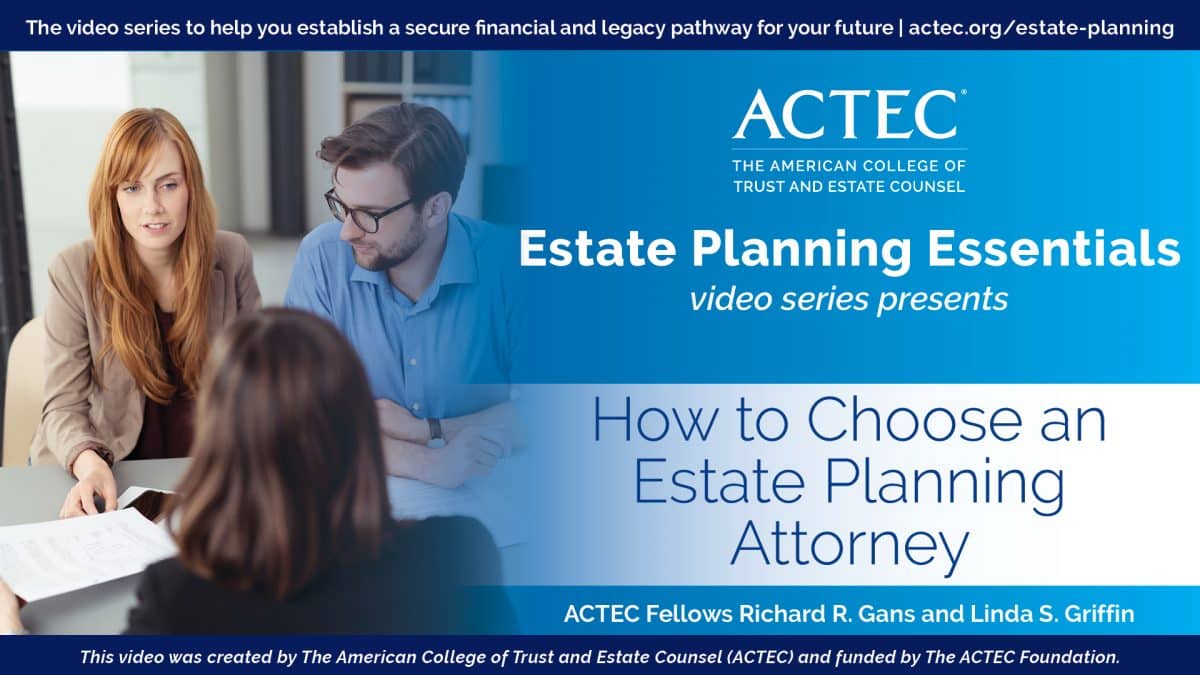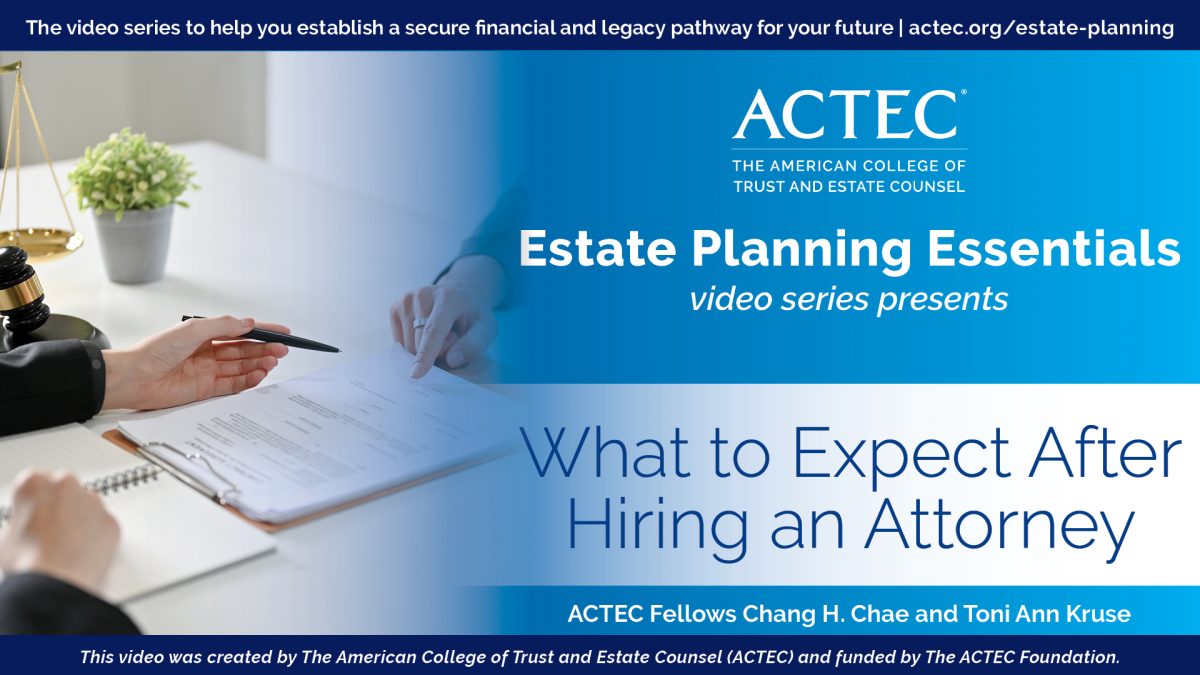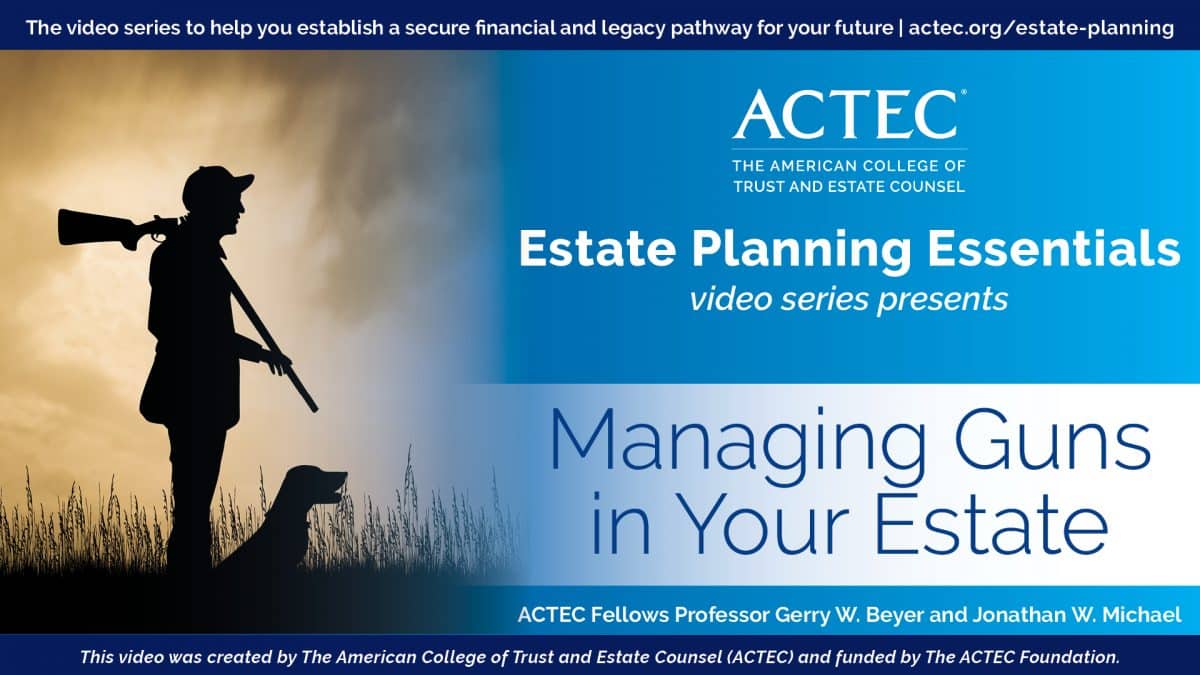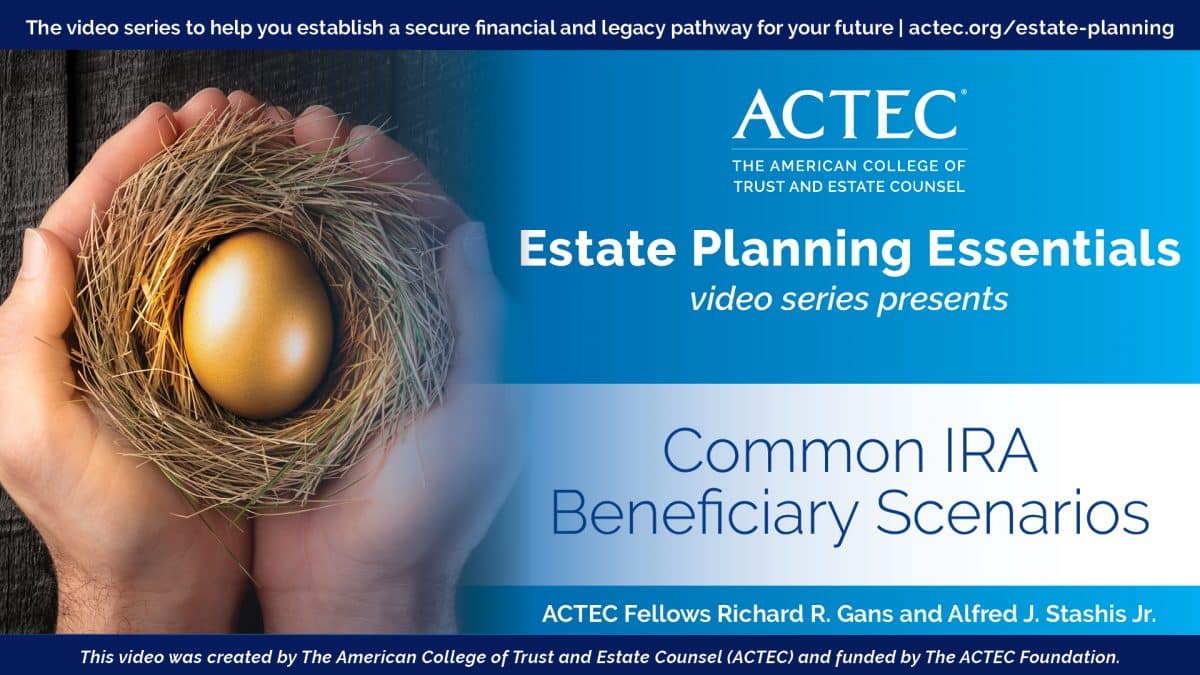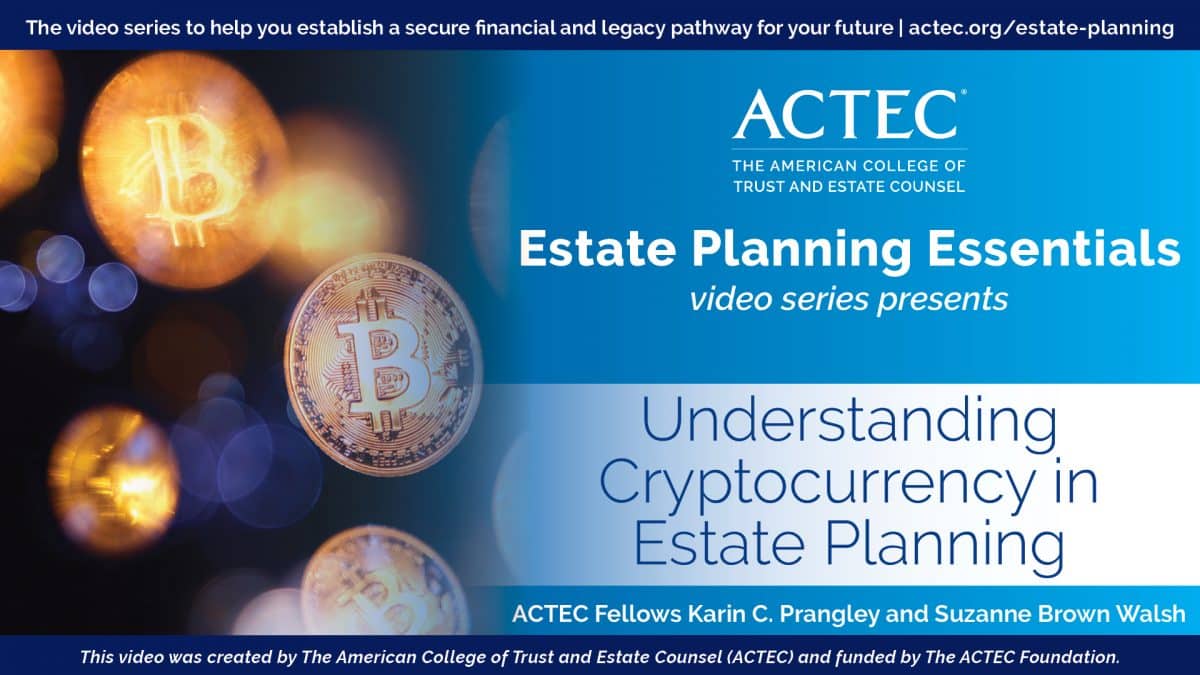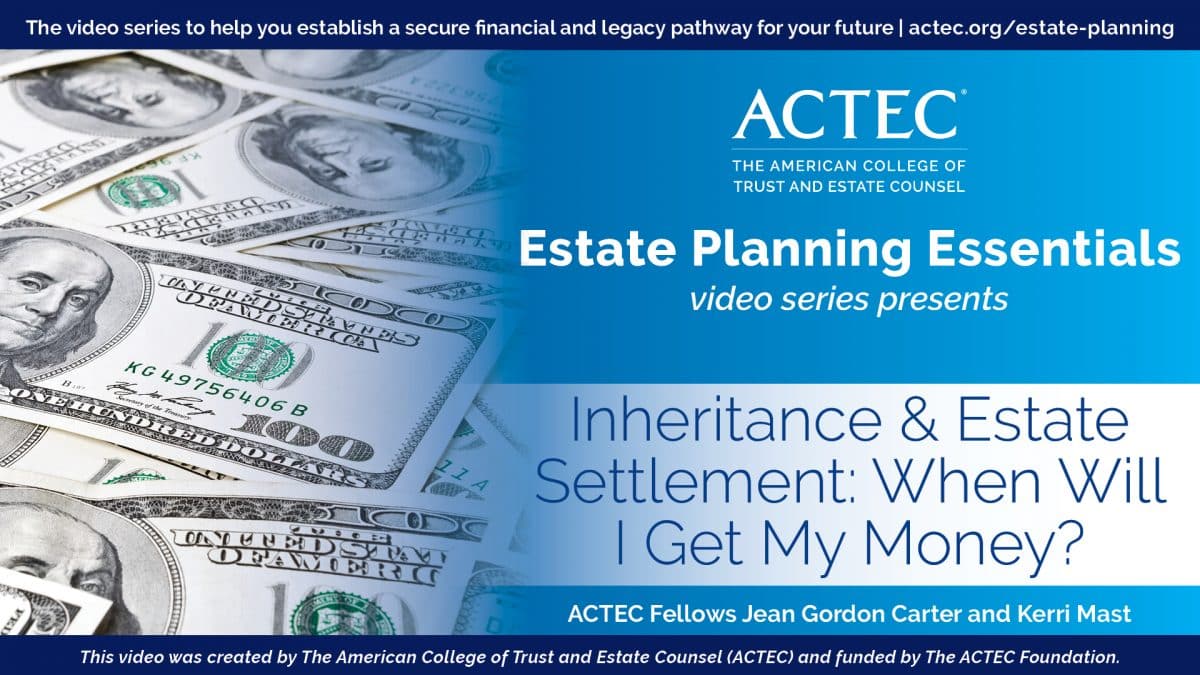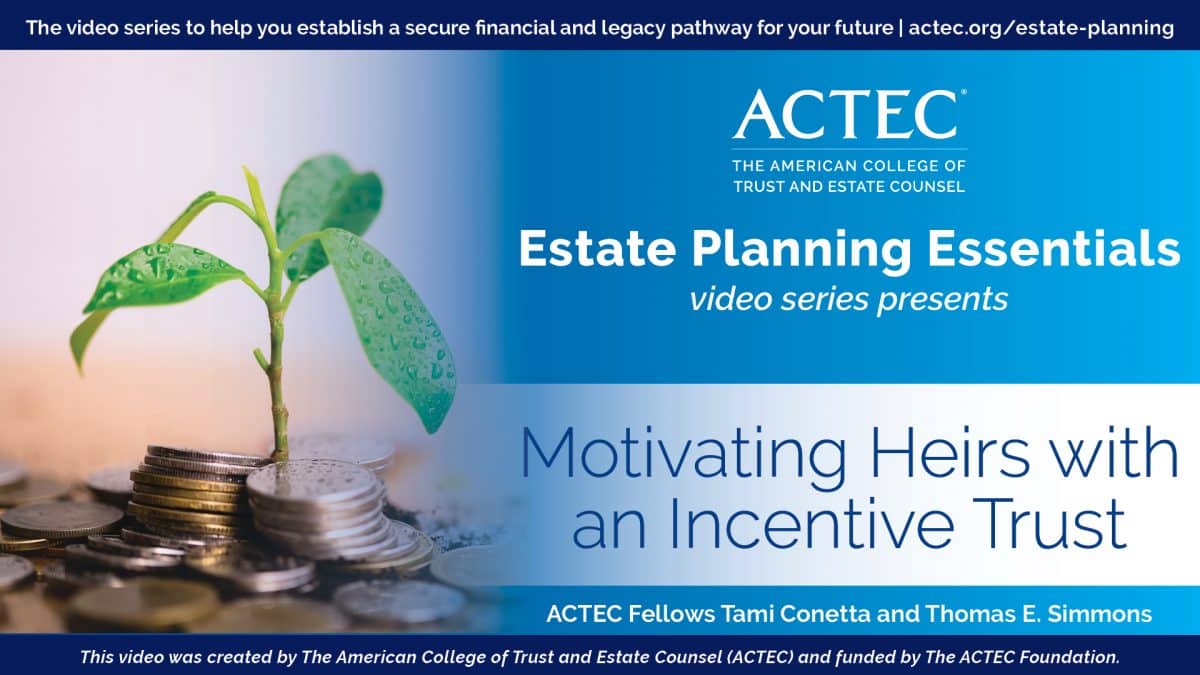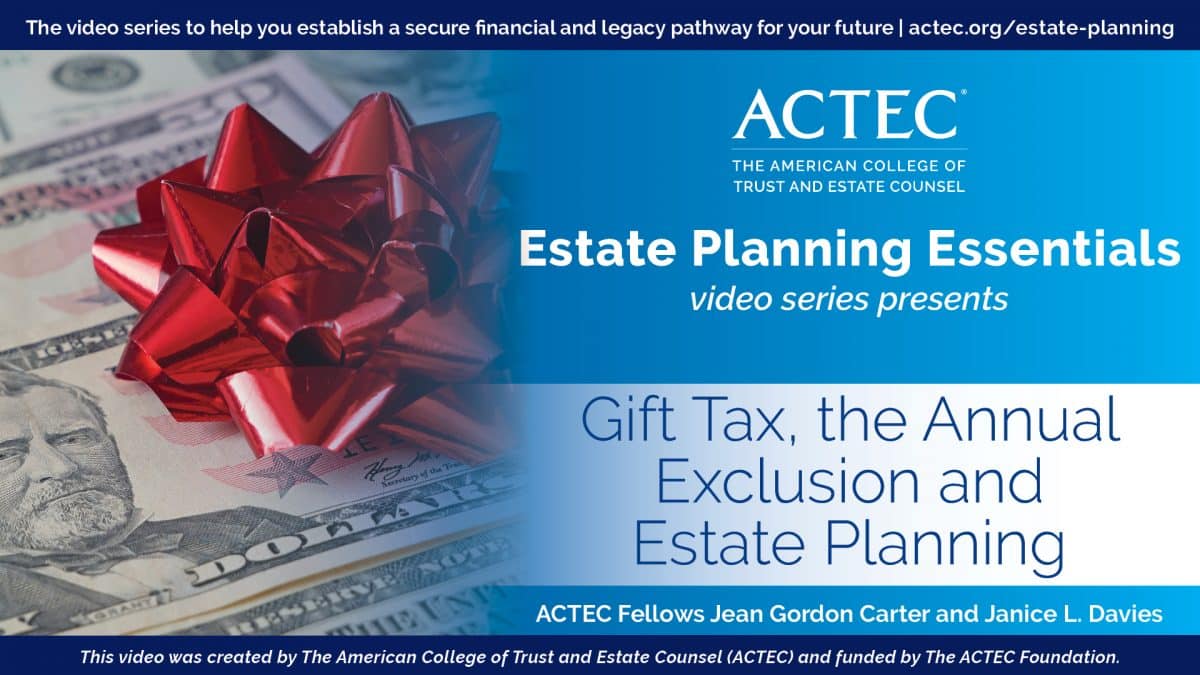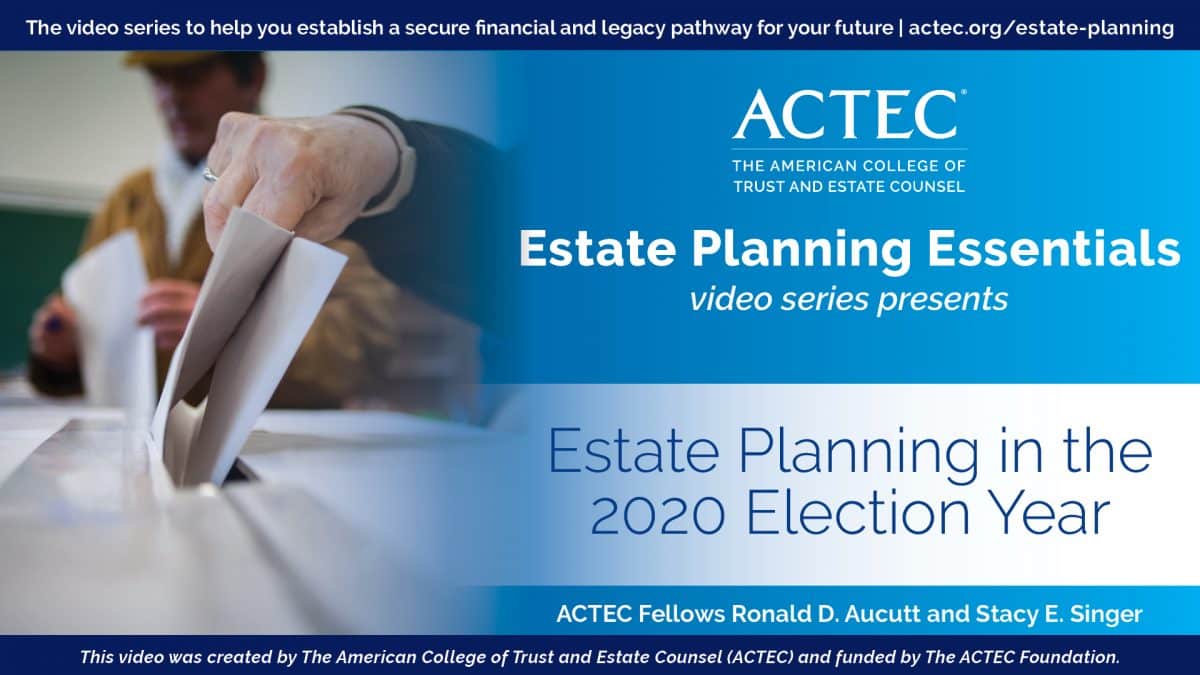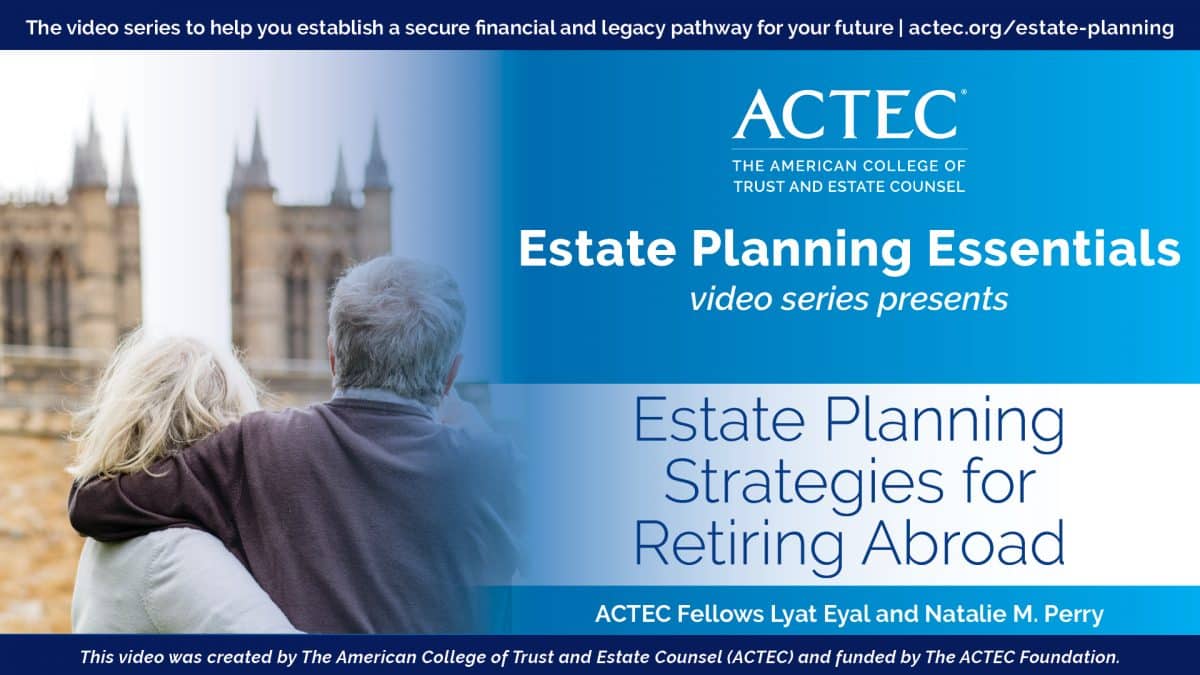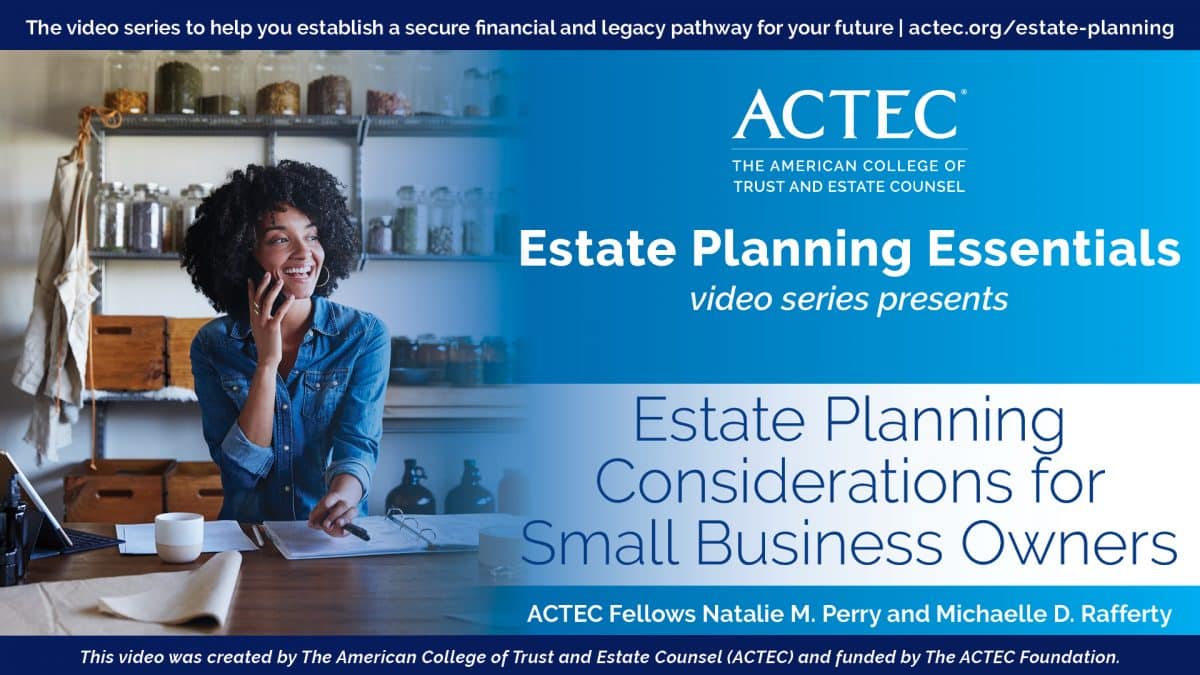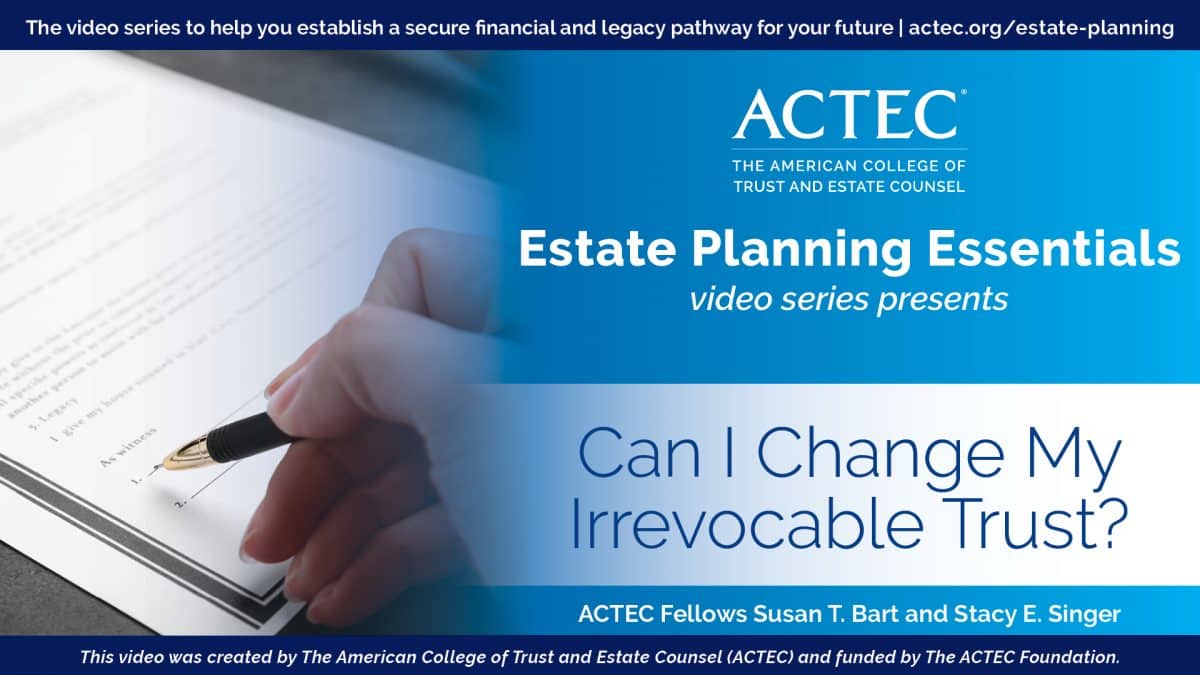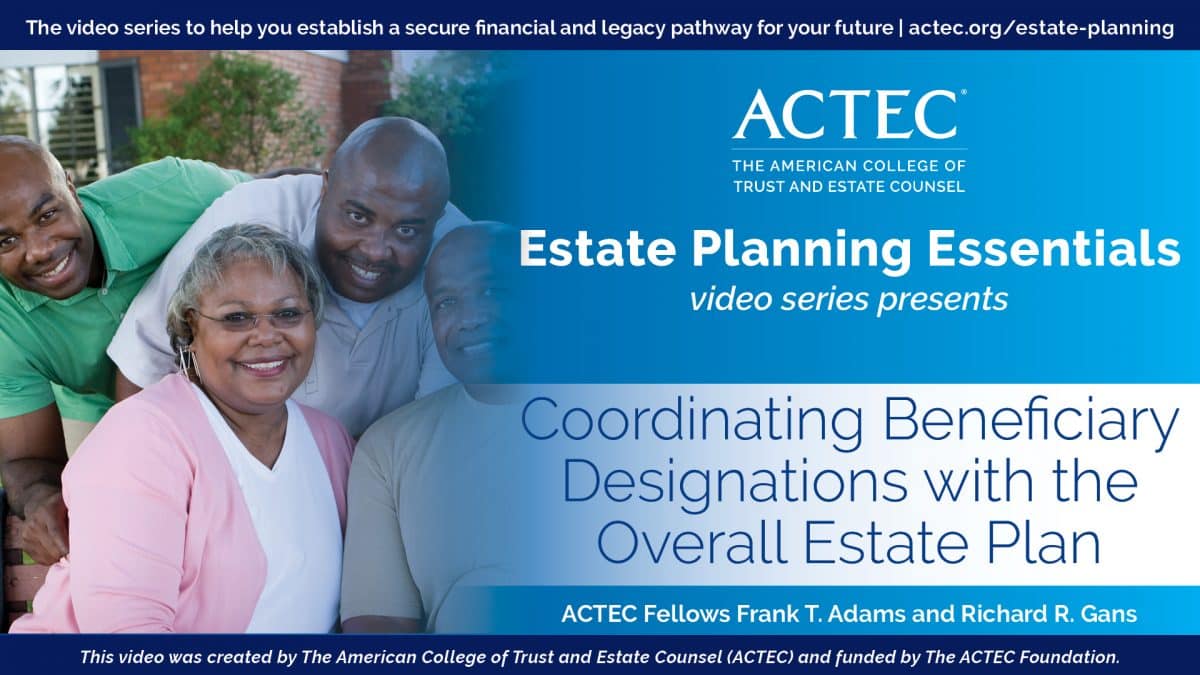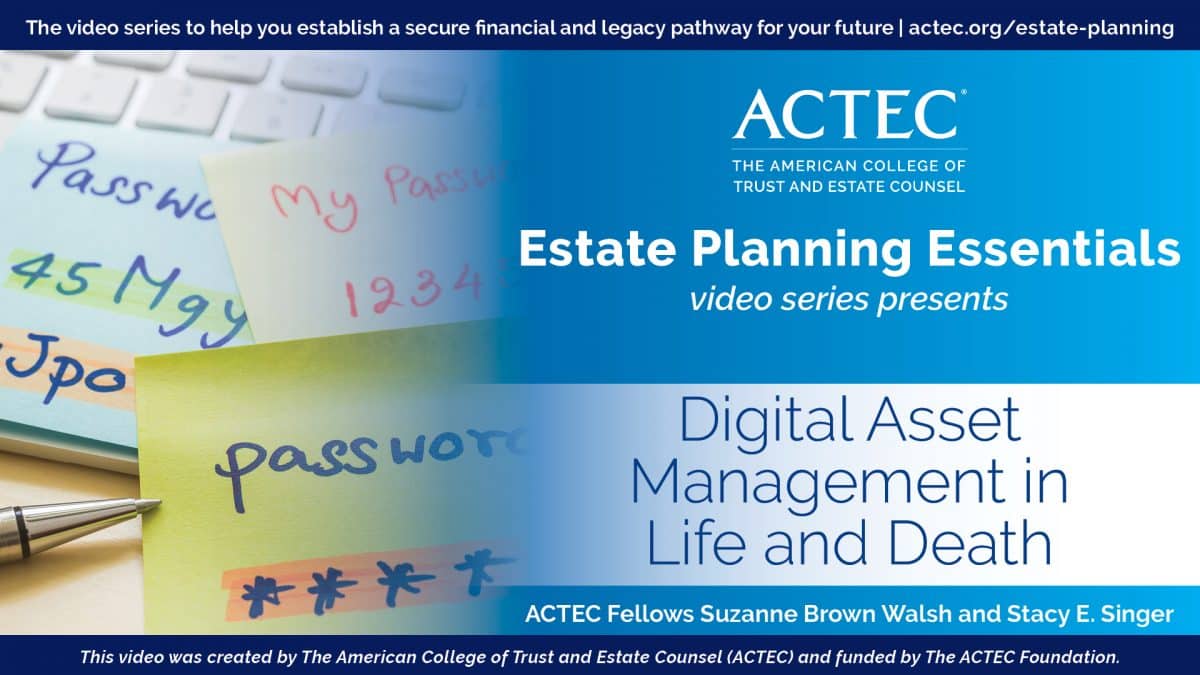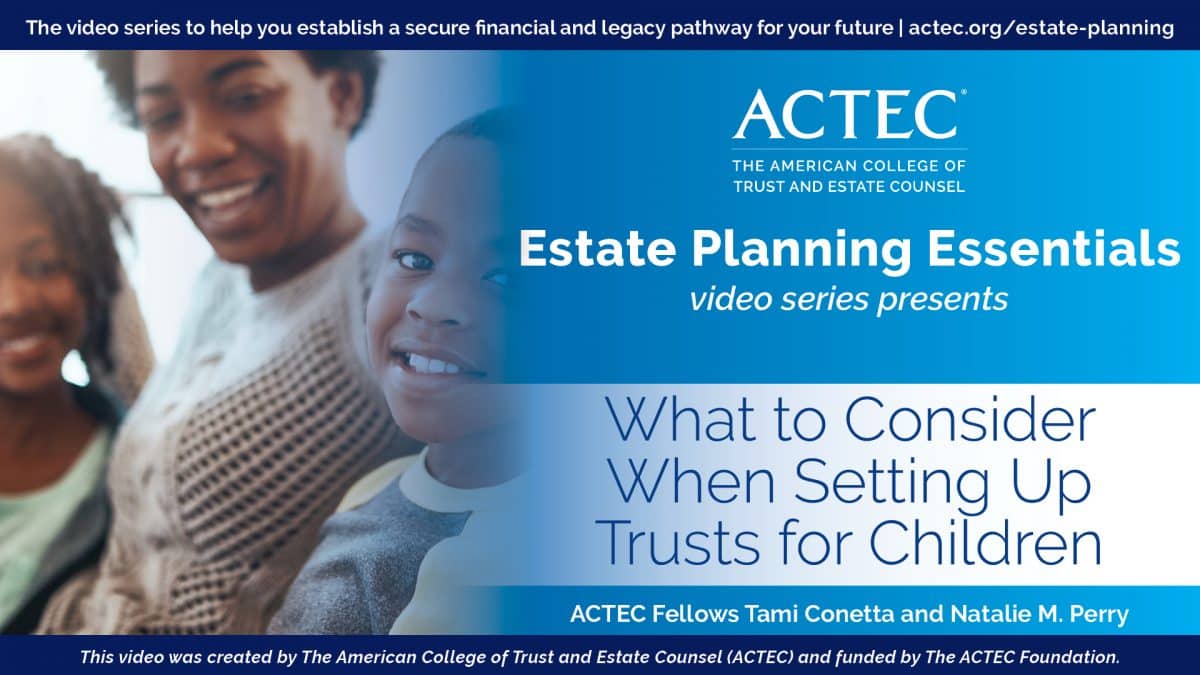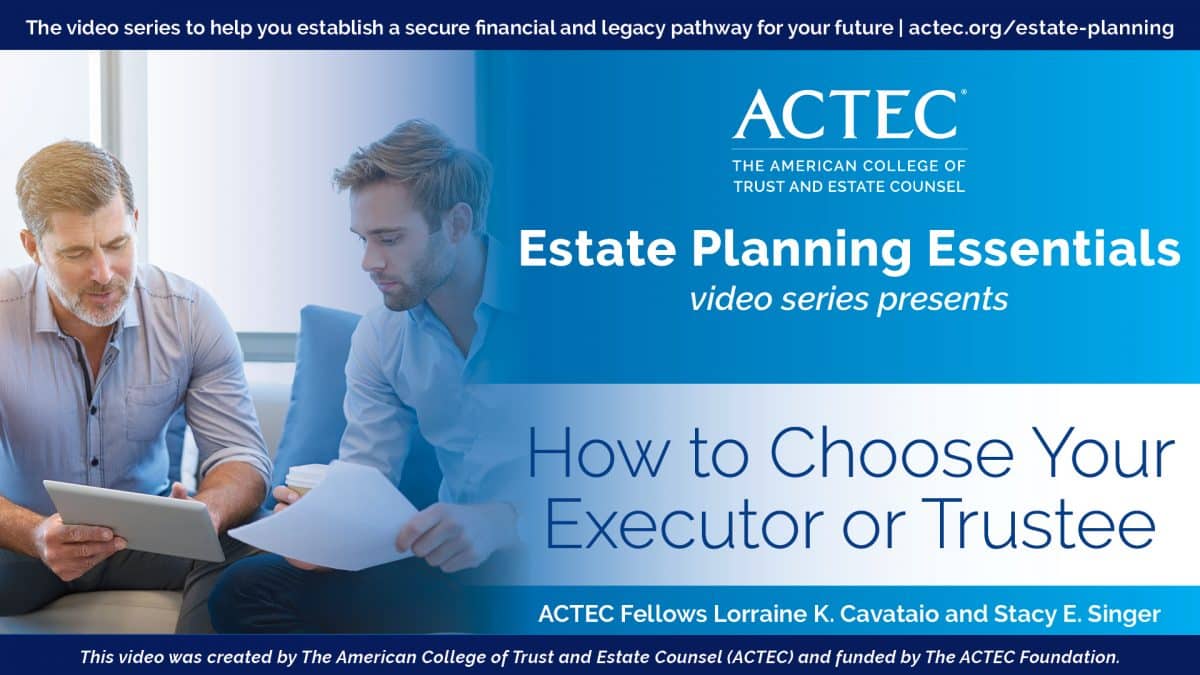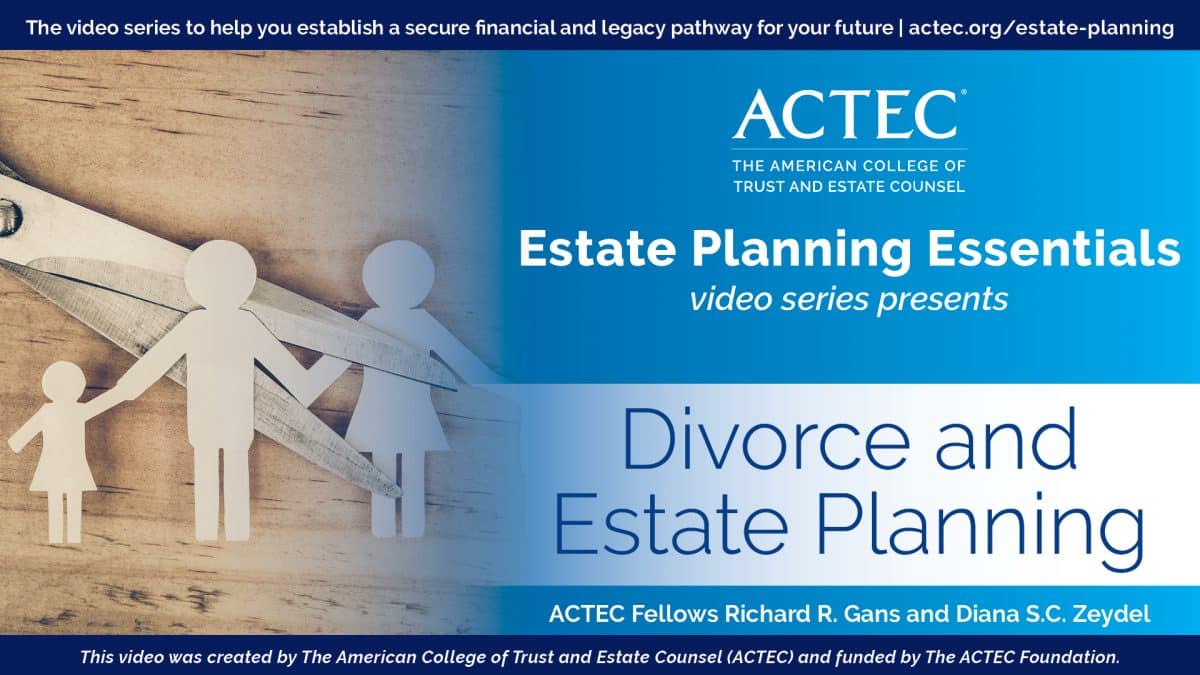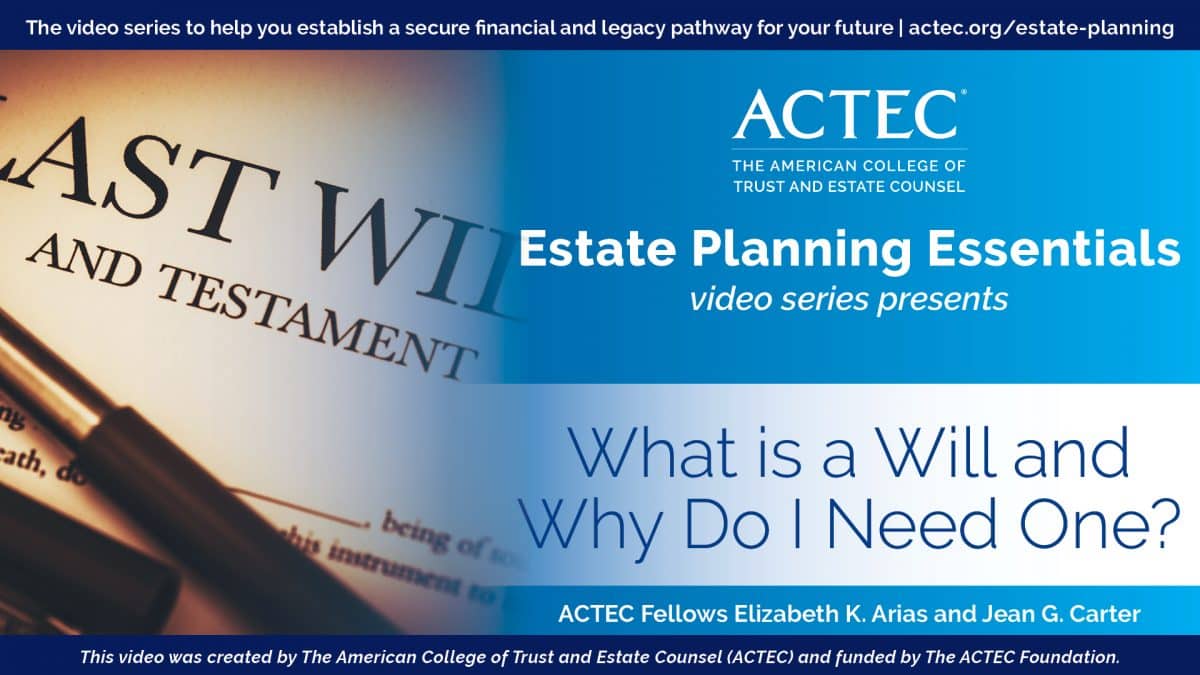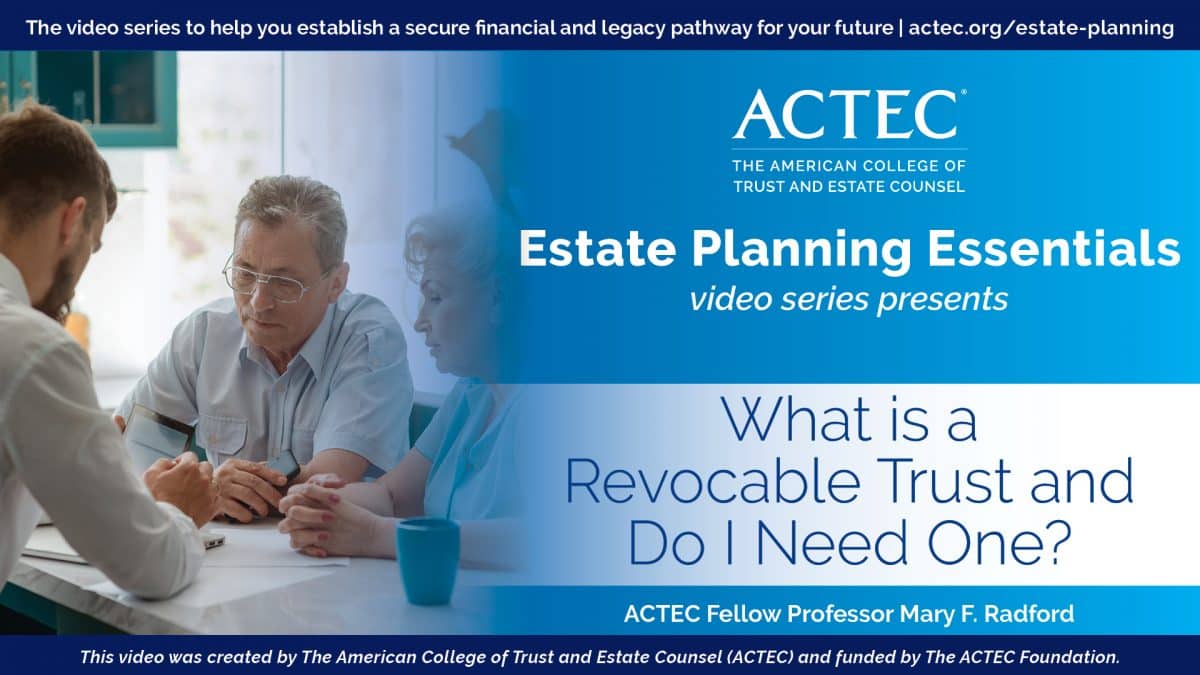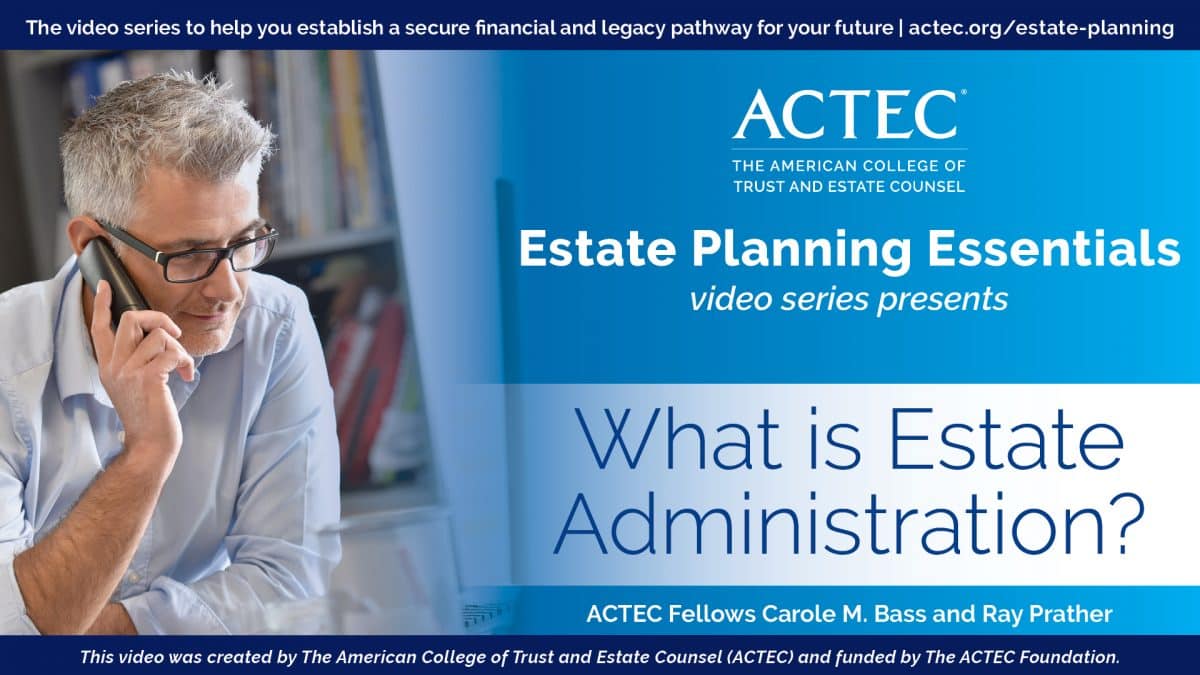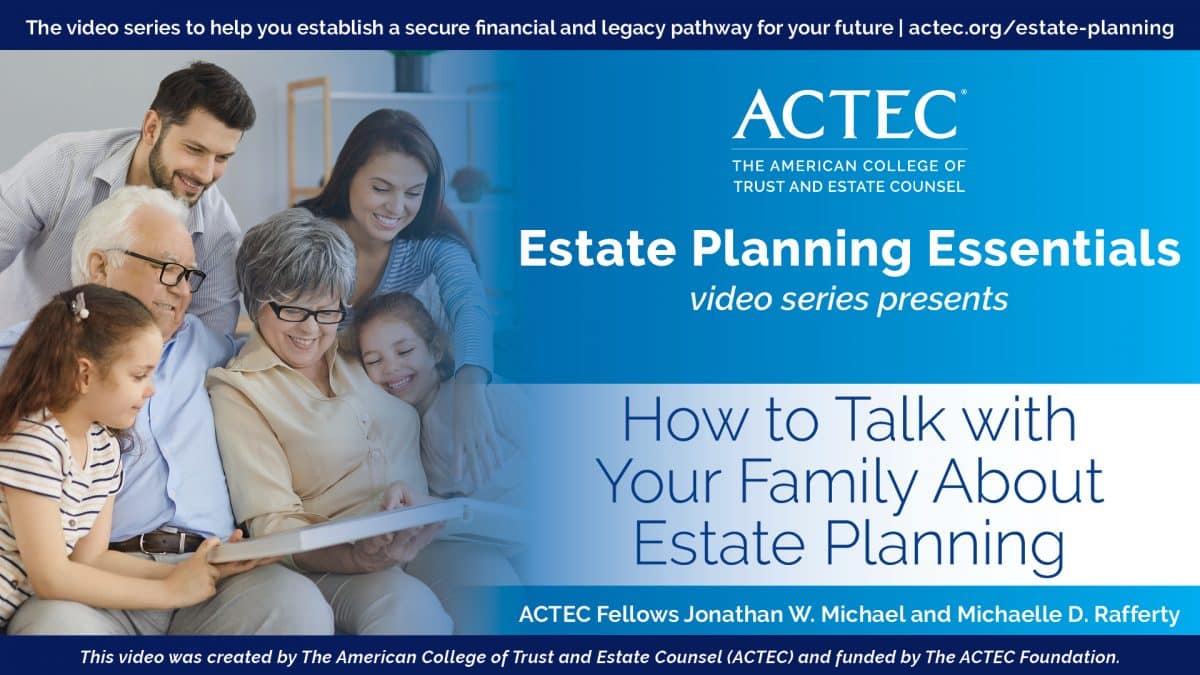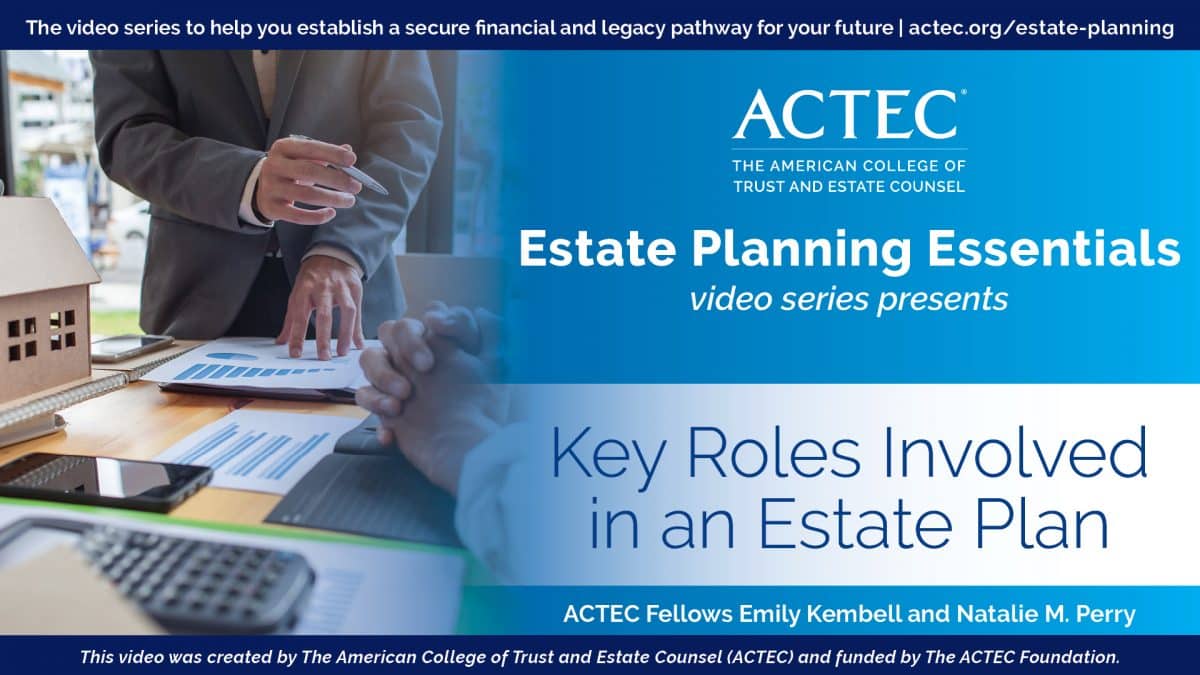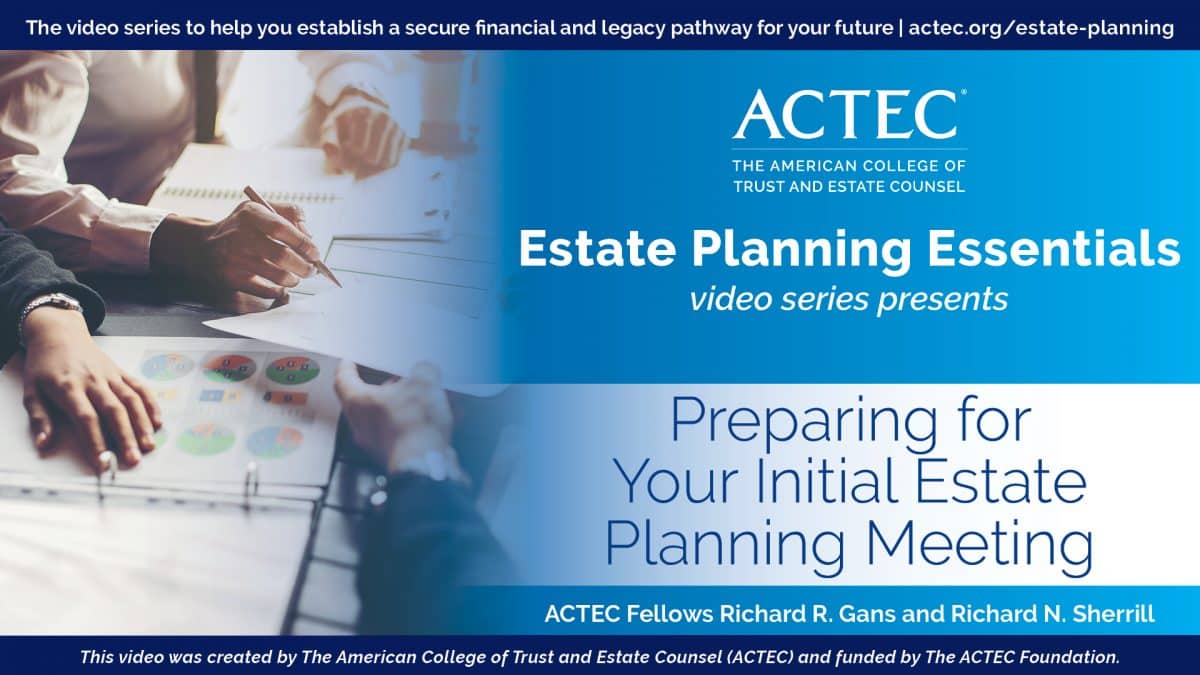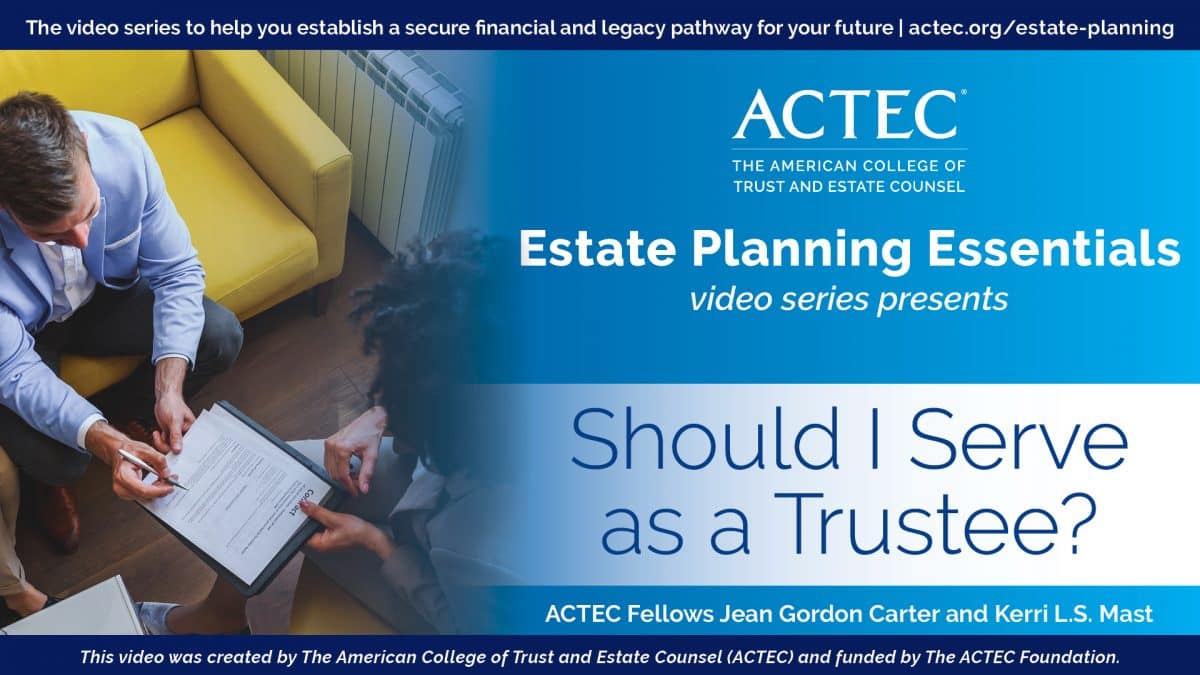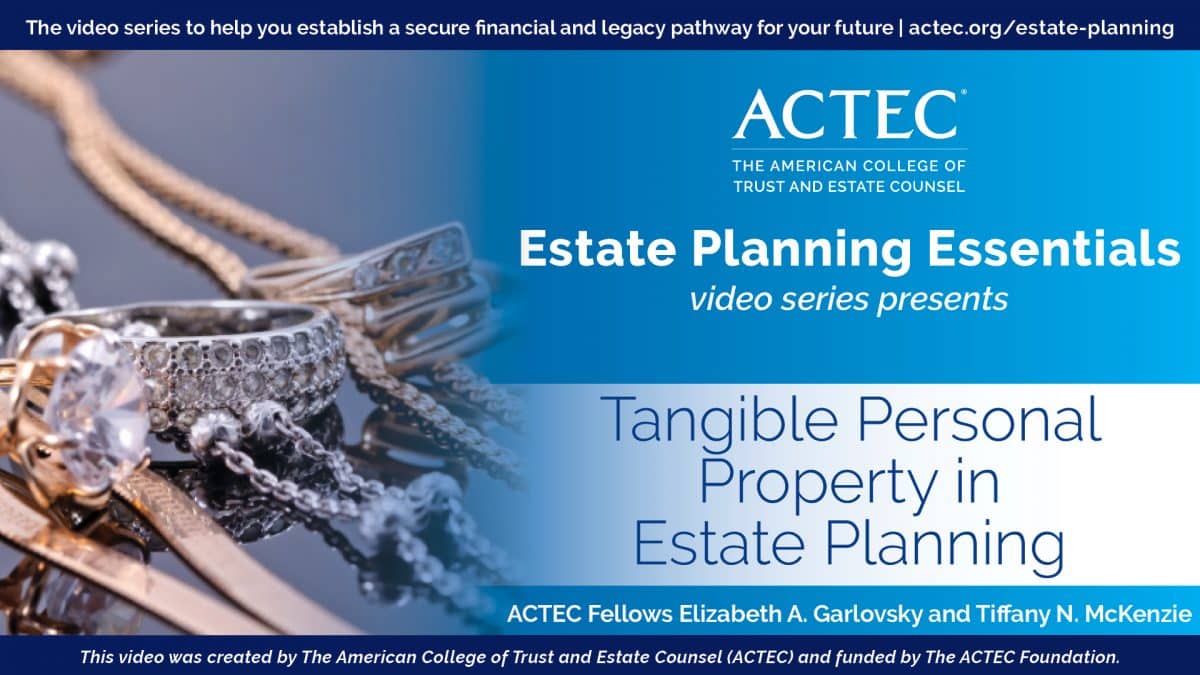What is a will? What is a trust? How do you choose a person to manage your will or trust?
Wills and trusts are legal instruments that help individuals manage and distribute their assets and properties after their death. While both serve similar purposes, there are key differences between the two. Learn more about how to manage your estate plan, choose an executor or trustee, and the pitfalls of Do It Yourself (DIY) documents.
Videos About Wills & Trusts
ACTEC Estate Planning Essentials is a comprehensive resource provided by the American College of Trust and Estate Counsel (ACTEC) that offers guidance and information on various aspects of estate planning.
-
Living Trusts and the Impact on Taxes
Estate planning attorneys explain the purposes of a living trust, how to fund a trust and retitle assets, and tax implications.
-
Use of Artificial Intelligence (AI) in Creating an Estate Plan
Discover the pros and cons of using AI in estate planning with Professor Gerry Beyer and attorney, Natalie Perry. Learn why expert legal advice is crucial.
-
The Dissatisfied Heir
Estate experts explain to heirs what they need to understand in an inheritance dispute, including their rights, contesting a will, and when to seek counsel.
-
Charitable Giving Tips & Tricks
A primer on donations, including tax considerations, donating stocks vs. cash, “bunching” donations, donor-advised funds (DAF), and more.
-
Artificial Intelligence (AI) and Planning Your Estate
Estate planning attorneys explain what consumers should be aware of when using AI and what their lawyer’s professional responsibilities should include.
-
Estate Planning for Freelancers and the Gig Economy
Explore estate planning for freelancers and gig workers. Learn about tax planning, creating a will, asset management, planning for incapacity, and more.
-
Funding Your Revocable Trust and Other Critical Steps
Learn why funding your trust is vital for seamless asset transfer, minimizing legal issues and taxes, and safeguarding your beneficiaries’ future in this video.
-
Should I Serve as an Executor?
Estate attorneys explain what individuals need to understand before agreeing to serve as an estate executor, such as probate, tax, and legal requirements.
-
Should I Serve as a Healthcare Agent Under a Power of Attorney (POA)?
Understand what you need to know about accepting the legal responsibility of a healthcare agent, aka a healthcare surrogate or healthcare proxy.
-
Can I Do a Will for Myself?
Understand the pros and cons of writing a will for yourself and what should be considered when planning for the disposition of your assets.
-
Postmortem Planning
An overview of what estate planning decisions can be made pre-mortem and postmortem, including tax implications, decanting, and portability considerations.
-
Pitfalls of Do-It-Yourself Estate Planning
A discussion of what consumers need to know about using do-it-yourself estate planning documents and DIY wills.
-
How to Choose an Estate Planning Attorney
Finding and choosing an estate planning attorney can be intimidating. Learn where you can go online to find qualified estate planning attorneys.
-
What to Expect After Hiring an Attorney
Tips on what to keep in mind when working with an attorney, including the difference between individual, joint and family representation.
-
Managing Guns in Your Estate
Estate planning experts explain the complexity of transferring firearms and guns in your will and offer tips regarding what to consider when bequeathing weapons.
-
Common IRA Beneficiary Scenarios
There are no do-overs with IRA beneficiaries! Understand the typical IRA beneficiary scenarios and why reviewing every time you set up an IRA is critical.
-
Understanding Cryptocurrency in Estate Planning
Understand how to manage cryptocurrency in your estate and plan for the succession of your digital assets from estate planning experts.
-
Inheritance and Estate Settlement: When Will I Get My Money?
Experts in estate planning explain how inheritance and estate settlement work and what to know if you have been identified as a beneficiary in a will or trust.
-
Motivating Heirs with an Incentive Trust
Learn the benefits and pitfalls of incentive trusts when motiving heirs or beneficiaries and rewarding positive behavior.
-
Gift Tax, the Annual Exclusion and Estate Planning
Understand when gift tax comes into play, how the age of the recipient impacts gift tax, efficient ways to transfer property, split gifts, the annual exclusion and more from estate planning experts.
-
Estate Planning in the 2020 Election Year
Learn what steps taxpayers may want to consider during a presidential election year and how to plan for future legislation and changes in charitable giving law.
-
Estate Planning Strategies for Retiring Abroad
Learn what retirement planning you need when moving overseas, such as document updates, guardianship considerations when moving with minor children, and more.
-
Estate Planning Considerations for Small Business Owners
Small business owners need to plan for their company’s transition in their estate plan. Understand the impact of state laws, beneficiaries, estate taxes and more.
-
Can I Change My Irrevocable Trust?
Learn what changing an irrevocable trust entails, what it means to decant a trust, what courts can do and other pitfalls from ACTEC trust and estate experts.
-
Coordinating Beneficiary Designations with the Overall Estate Plan
Assets such as insurance, annuities, pensions, 401ks and IRAs have a beneficiary designation. Experts explain considerations when coordinating an estate plan.
-
Digital Asset Management in Life and Death
Digital assets in estate plans include online accounts, cryptocurrencies, files, email, and media. Understand how to plan for their management and access.
-
5 Reasons to Update Your Estate Plan
Estate experts discuss five reasons to update your will and estate plan to account for business and life changes and to ensure your wishes stay aligned.
-
What to Consider When Setting Up Trusts for Children
Experts explain the best way to leave assets to minor children, whether children should receive equal assets, considerations if your child is married, and more.
-
How to Choose Your Executor or Trustee
Learn how to select the right executor or trustee for your estate, their responsibilities, and other considerations of note for a smooth estate transition.
-
Divorce and Estate Planning
Divorce affects estate plans. Understand why you should review your will, trust, and beneficiaries and consider new assets distribution to confirm your intent.
-
What Is a Will and Why Do I Need One?
Estate planning experts explain a critical legal document, a will, that outlines your wishes for asset distribution, guardianship, and more after your death.
-
What is a Revocable Trust and Do I Need One?
A revocable trust is a flexible estate planning tool that avoids probate. Learn why you may need it for privacy, asset management, and to avoid probate.
-
What is Estate Administration?
Estate planning attorneys explain what is involved in estate administration, the duration, distributions of assets, and what happens if there is no will.
-
How to Talk With Your Parents About Estate Planning
Trust and estate lawyers offer recommendations for how to have critical conversations with your parents about end-of-life planning and estate documents.
-
How to Talk with Your Family About Estate Planning
Recommendations for how and when to talk with your family about your estate plan, will and other documents by expert trust and estate attorneys.
-
Key Roles Involved in an Estate Plan
An explanation of the roles and responsibilities involved in a will, trust, or estate plan such as fiduciary, agent, executor, trustee, and guardian.
-
Preparing for Your Initial Estate Planning Meeting
Experts in estate planning explain what information and documents clients must provide to an attorney during the initial meeting to be efficient with time.
-
Should I Serve as a Trustee?
Attorneys explain the responsibilities and risks of being a trustee of a trust, a role that involves significant legal and ethical obligations.
-
Should I Serve as an Agent Under a Financial Power of Attorney (POA)?
Understand what’s involved in the role of a property or financial power of attorney (POA), what’s entailed, and what questions you should ask yourself.
-
Tangible Personal Property in Estate Planning
Experts explain why you’ll want to add provisions regarding tangible personal property, such as furniture, vehicles, electronics, and jewelry, to your will or trust.


